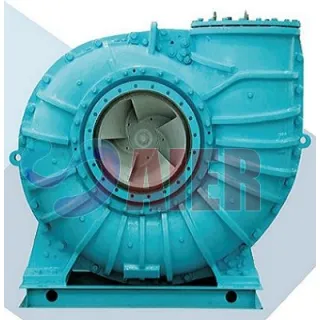Nov . 07, 2024 09:07 Back to list
Types of Impellers for Slurry Pumps and Their Applications in Industry
Understanding Slurry Pump Impeller Types
In industrial applications where fluid transport is crucial, slurry pumps play a vital role. These pumps are designed specifically to handle slurries—mixtures of solids and liquids—making them essential in industries such as mining, metallurgy, and construction. One of the most critical components of these pumps is the impeller, which directly influences the pump's efficiency, durability, and overall performance. In this article, we'll delve into the various types of impellers used in slurry pumps and how they impact the pumping process.
Types of Impellers
1. Open Impellers Open impellers are commonly used in slurry pumps due to their simple design, which consists of a set of vanes mounted on a central hub without any enclosed shroud. This design allows for easier passage of solids and is less likely to clog, making it ideal for transporting slurries containing large particles. Open impellers, however, may experience higher wear rates due to the lack of protection from solid materials, so they are typically selected for applications where the slurry is less abrasive.
2. Closed Impellers Closed impellers feature a design where the vanes are enclosed between two shrouds. This configuration allows for more efficient fluid movement and can generate higher pressures than open impellers. While closed impellers are less effective in handling large solid particles, they are advantageous in applications requiring a high flow rate and pressure. Their enclosed design also aids in reducing wear, making them a preferred choice for less abrasive slurries.
3. Semi-Open Impellers As a compromise between open and closed designs, semi-open impellers have a partial shroud that helps improve efficiency while still allowing for the passage of solids. They provide a balance between performance and resistance to wear, making them suitable for a variety of slurry applications. Semi-open impellers are particularly beneficial in scenarios where slurry composition may vary, allowing for flexible operation without a significant loss in efficiency.
Material Considerations
slurry pump impeller type

The choice of impeller type is often dependent on the nature of the slurry being pumped. Factors such as solid size, concentration, and abrasiveness play a crucial role in determining the most suitable impeller material. Common materials include
- Cast Iron Durable and cost-effective, traditional cast iron impellers are suitable for moderate wear applications.
- High-Chrome Alloys Best for highly abrasive slurries, high-chrome impellers offer exceptional wear resistance, ultimately extending the lifespan of the pump.
- Rubber Linings Used in applications where corrosion is a concern, rubber-lined impellers provide both wear resistance and protection against corrosive materials.
Conclusion
Placing an appropriate impeller in a slurry pump is crucial for ensuring its performance and longevity. The choice between open, closed, and semi-open impellers should be carefully evaluated based on the specific characteristics of the slurry and the operational requirements of the system. By understanding the advantages and limitations of each impeller type, engineers and operators can optimize their slurry pumping solutions, minimizing downtime and maintenance costs while maximizing efficiency in their industrial processes. With the right selection, slurry pumps can deliver reliable performance even in the most challenging environments.
-
Wholesale Casting Dredge Pump Part - High Quality China Manufacturers & Suppliers
NewsJul.04,2025
-
High Quality Slurry Pump Seals Reliable China Suppliers & Manufacturers
NewsJun.24,2025
-
High Quality Portable Submersible Slurry Pump Supplier & Manufacturer from China
NewsJun.10,2025
-
Slurry Pump Parts Manufacturer – High Quality Rubber Spare Parts from China
NewsJun.10,2025
-
High Quality 1/3 HP Submersible Sump Pump with Vertical - Reliable Supplier & Factory Price
NewsJun.10,2025
-
High-Efficiency Centrifugal Slurry Pumps India
NewsJun.10,2025
